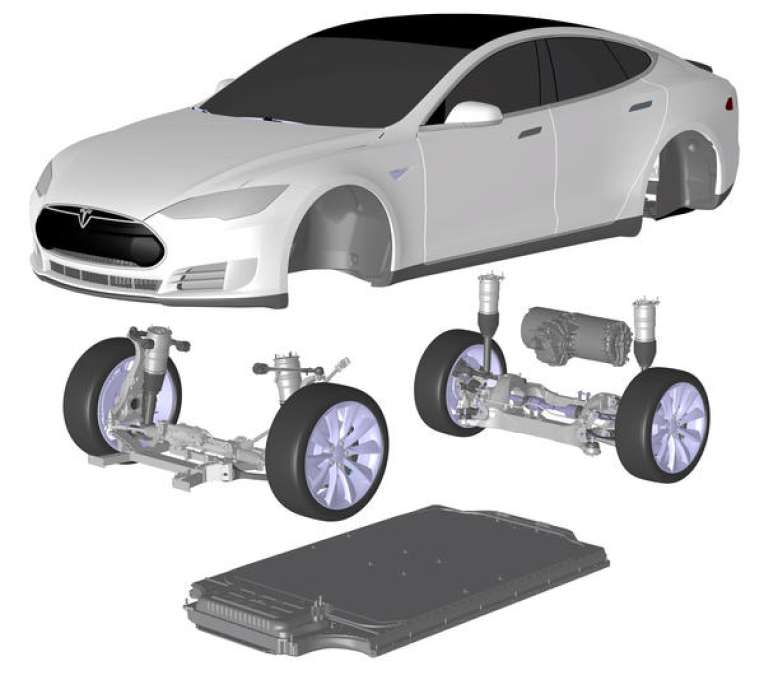A week ago we noted that Tesla Motors had a job opening talking about autonomous cars, as if Tesla were planning to some day develop a self-driving car. On Tuesday, the Financial Times ran a report giving some details on the plan to develop autonomous driving features that would handle 90% of driving chores.
What we noted last week is that two recent job postings on Tesla's careers site call for engineering talent that's necessary for autonomous driving. The first was for RADAR/LIDAR systems engineering talent, that's necessary for the sensors required to implement autonomous driving. The second opening, for a Advanced Driver Assistance Systems (ADAS) Controls Engineer, will develop car control systems for autonomous driving.
The goal, says the Financial Times article, is not full autonomous driving. They quote Elon Musk saying “My opinion is it’s a bridge too far to go to fully autonomous cars. It’s incredibly hard to get the last few per cent.” Instead of fully autonomous cars, the goal is “We should be able to do 90 per cent of miles driven within three years,” Musk said.
What Musk is saying, is that developing full 100% autonomous driving is a lot more development and testing work than it is to develop 90% autonomous driving. Drivers would be able to turn on a form of "auto-pilot" which would be capable of handling the driving in most conditions.
By going for the 90% goal, Tesla intends to deliver the feature in three years (by 2016-17) where other companies, like Nissan, say they'll provide autonomous driving features in 2020 or later. In Feb. 2012, Brad Templeton (a member of the Google Driverless Car team) claimed it would be 20 years or more before driverless cars (Robocars) were practical.
While it's known that Elon Musk has spoken with Google about driverless cars, Tesla's autonomous driving feature will be developed in-house. Google has yet to find an automaker willing to adopt Google's driverless car technology.
It's unlikely existing Tesla Model S owners will be able have their cars upgraded to support autonomous driving. This feature requires sensor systems that Tesla Motors has yet to develop, and therefore the current Model S's do not have the hardware required to implement autonomous driving.
Source: Financial Times





